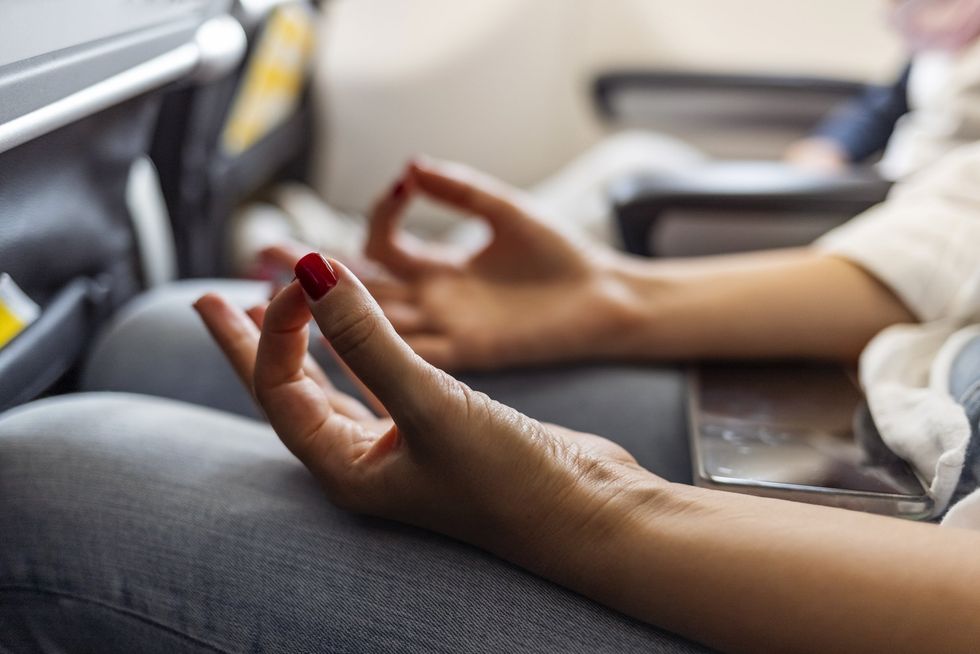Travel anxiety is more common than you may think – especially in recent times with a staggering 5614 per cent increase in Google searches in January alone.
Well now, Simply Nootropics researcher, neuroscientist and brain health expert, Dr Brain Ramos, has lifted the lid on the psychology behind flight anxiety, explaining: "People’s past experiences, personality traits, and levels of general anxiety all play a role in how intensely they experience flying anxiety, making some individuals more prone to it than others."
He went on to share five invaluable tips to help ease the symptoms:
Reframe anxiety as excitement
"Reframing anxiety as excitement can trick your brain into receiving your nervous system's response more positively. Both anxiety and excitement trigger similar physical responses, like a racing heart and butterflies, but the key difference lies in how we interpret them," he shared.
"Instead of viewing these sensations as signs of danger, you can remind yourself they signal anticipation and energy. Tell yourself, 'I’m excited about this experience' instead of 'I’m scared.' This mental shift encourages a positive outlook and transforms nervous energy into an empowering feeling, helping you feel more in control during and in the lead-up to the flight."
Consider the facts
"Look around you – is anyone else freaking out? Aeroplanes are one of the safest modes of transportation. Statistically, the odds of an accident are extremely low, with air travel being far safer than driving in a car – something we all do regularly and don't bat an eyelid at," Dr Ramos said.
"Knowing these facts can help you challenge irrational fears. By focusing on the robust safety measures and the reality of air travel’s track record, you can feel more confident and reassured during flights."

Preoccupy yourself
Dr Ramos said: "Distracting your mind with a good podcast or book is a great way to manage flight anxiety by redirecting your focus away from fear-inducing thoughts. Engaging with a story or interesting conversation can keep your brain occupied.
"What's more, time flies when you’re invested in something interesting and so, you may even find that your flight isn't just more relaxing, but it feels a lot quicker too."
Feel yourself panicking? Try to recentre your brain with these tips
"To calm an anxiety attack during a flight, first, focus on your breathing. Practice deep, slow breaths; inhaling through your nose for four counts, holding for four, and exhaling through your mouth for four. Second, ground yourself using the 5-4-3-2-1 technique: identify five things you can see, four you can touch, three you can hear, two you can smell, and one you can taste," Dr Ramos advised.
"Finally, use positive self-talk, reminding yourself that the feelings are temporary and that flying is extremely safe, helping to redirect your attention and reassuring yourself can significantly reduce anxiety. If it helps, try a free podcast that offers guided meditation."
How to join the indy100's free WhatsApp channel
Sign up for our free Indy100 weekly newsletter
Have your say in our news democracy. Click the upvote icon at the top of the page to help raise this article through the indy100 rankings.














